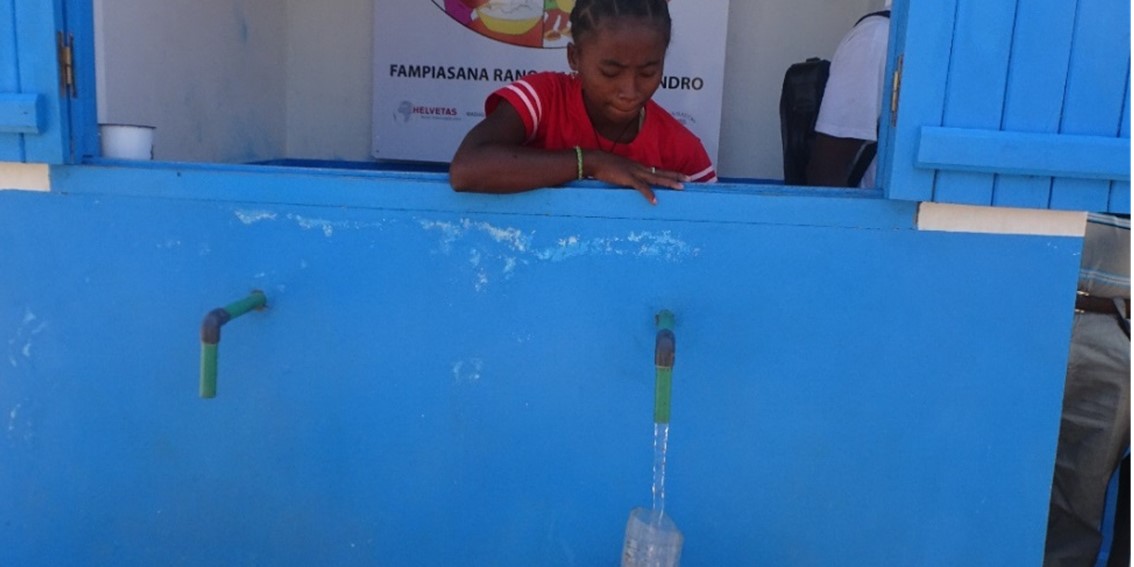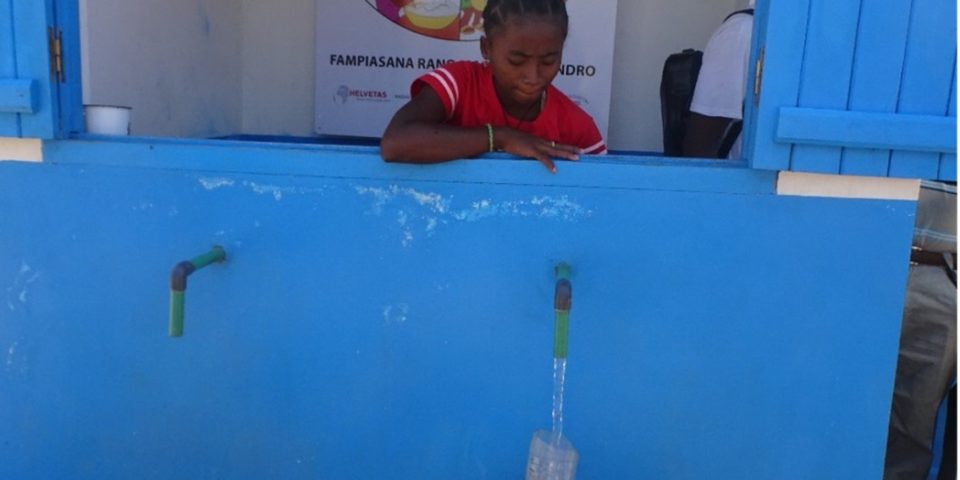
In Madagascar, private companies are increasingly involved in the design, construction and operation of water schemes. These companies also contribute with a monetary initial investment (usually around 10%), alongside the local authorities (5%) and the project (85%). The water scheme, which remains propriety of the local authorities, are leased to a private company which is selected via a competitive tender process for a period of usually 15 years. The private operator has the responsibility to construct (or rehabilitate) the network according to the specifications of the lease and the grant contracts as well as to provide, in a transparent manner, water responding to criteria of quality, quantity and accessibility.
The project supports the commune in setting up a technical service. It mainly controls the quality of the service provided by the company (regular controls of the water quality, discussion on possible extensions of the network, reviewing of annual reports which are approved by the authorities, etc.) and serves as an entry point for the company in their communication with the local authorities. Water user associations are also established to ensure accountability of the commune and the company towards the users.
In their bids, the companies suggest a water tariff (together with a complete financial and technical offer for the construction/rehabilitation and operation of the water scheme). This price is then renegotiated with the local authorities who set the final water price. Usually the price differs for the various types of services provided (cheaper for water kiosk, more expensive for private connections) and includes a tax (mainly for the extension of the network).
This promising approach allows to mobilise further funds for the construction of water schemes and appears to ensure the provision of quality service during the period of the lease contract. Indeed, in order to ensure high recovery rates, it is in the interest of the private company to ensure a service of good quality.
The experiences have been documented and shared in the article presented at the Rural Water Supply Network (RWSN) forum 2016 in Abidjan, Côte d'Ivoire.
Our teams have also produced and shared an excellent video, very nicely illustrating the project.

